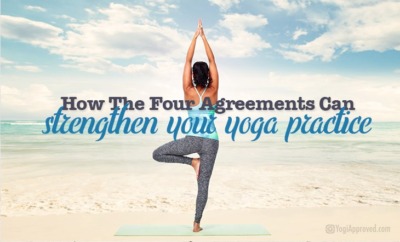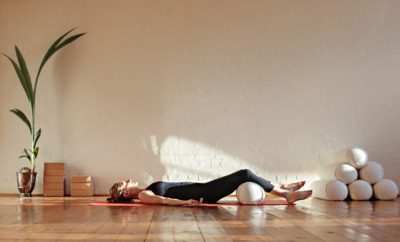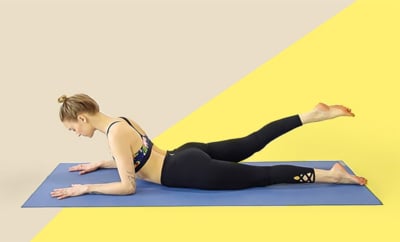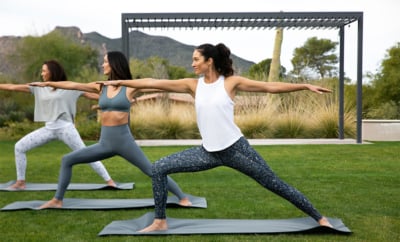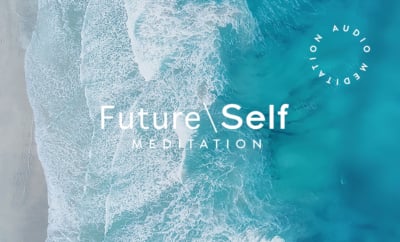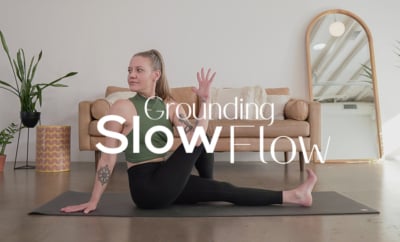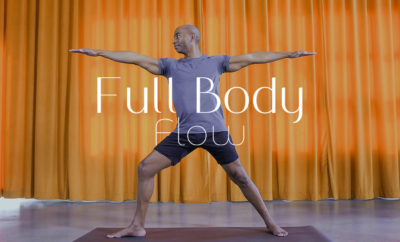The Four Agreements: How to Stop Making Assumptions in Your Yoga Practice

Stop Assumptions featured image
We tell our truths through yoga. When we practice yoga, we cannot lie. Who we are in that given moment is evident and undeniable. The Four Agreements by Don Miguel Ruiz teaches that being able to recognize the truth beyond the stories in our heads is the way to a happy and contented life.
Using this indispensable formula has altered my yoga practice in sweet and profound ways. Breaking down a posture through the lens of these four agreements will help you develop a sincere understanding of how to put these concepts into practice on and off the mat.
In case you aren’t yet acquainted, The Four Agreements are principals that create an ethical guidebook based on Toltec wisdom. The Toltec path leads us down roads of honesty, integrity, satisfaction, joy, and a peaceful existence.
In order, these agreements are:
- Be impeccable with your word
- Take nothing personally
- Assume nothing
- Do your best
We’ve addressed the first and second agreements in the previous articles. Now, we’ll examine the third agreement, and how it can alter any yoga posture or sequence.
Agreement #3: Assume nothing
The third agreement to not make any assumptions is my personal favorite agreement to examine a yoga pose through.
If we pay attention, we all catch ourselves making assumptions. It’s safe to assume (pun intended!) that most of us are guilty of this.
Saying things like it seems an obvious assumption, or it’s safe to assume places the burden on everyone else, instead of the person doing the assuming.
Assuming robs us of the delight that comes from not guessing or thinking you know what someone thinks, feels, or what action or words will come next.
When we assume, it causes miscommunication, disappointment, and lost experiences.
Committing to not making any assumptions makes us promise to be present and not judge others.
During an Ashtanga primary series, there is a set sequence of poses that you will practice. Within each primary series, this sequence does not vary.
In a vinyasa-style class, it’s not possible to assume. You may have a teacher you go to regularly, which may provide some knowledge of her style and favorite sequences. But you really can’t assume because the vinyasa practice allows for creativity and variation. That’s why vinyasa is the perfect space to practice not making assumptions.
When we assume, it causes miscommunication, disappointment, and lost experiences.
Below are two yoga poses where assumptions are frequently center stage.
Let’s explore how we can use these specific yoga poses to help us grow beyond our habits of making assumptions, both on and off the mat.
1. Upward Facing Dog
C’mon now! You know that from Up Dog, you wanna move directly to Down Dog. It’s what we do, yo! And, because of this frequently correct assumption, often students don’t bother to flip on to the tops of their feet, or remove their shoulders from their ears because in their minds, Up Dog is just a travel mechanism to get into Downward Facing Dog.

Ask yourself how this pose feels as you swerve through it on your way to the next pose. What would it be like to invest in correct alignment and take the full expression of this pose?
Try beginning in Up Dog, and experiment with all the places you can go that are not Down Dog. Or, even if Down Dog is your destination, ask yourself to not assume anyway. Remain in Upward Facing Dog for the duration of time it takes the instructor to cue you. The results likely will provide a feeling of being damn proud of yourself and your ability to stay in the moment.
2. Headstand

This pose! It’s a toughie for numerous reasons. But mostly, it’s because students assume they’ll fall out of the pose, so they do. Or, students often try to kick or hurl themselves up into it, and the force makes them fall over. Then they believe they just can’t do headstand and shy away from it in the future.
What do you do when you’re confronted with a pose you think may not be obtainable? If you assume you can’t handle it, you may avoid trying it. What happens when you examine your assumptions about the pose and yourself, and simply approach it a little differently?
It took me years to understand I couldn’t just fling myself up against a wall in headstand and think I was doing my body – or the wall for that matter – any favors. I was terrified I’d flip over, and so I did. Based on my experience, I assumed that headstand was too hard, and I wasn’t strong enough to do it. I believed I’d never be able to do it . . . until I began to question my assumptions. What happened is I learned that I was in fact strong – I just gave up too easily, and my concentration was shitty.
The Takeaway
Assumptions usually turn out to be embarrassing, and generally a waste of time and energy. Assumptions cause miscommunication on the regular, and they agitate your yoga practice too. Let go of thinking that you “know.” Instead, ask questions! Be receptive to your “not knowing” – it will lead you away from assumptions, and therefore lead you away from suffering.
So – what are some of the assumptions you make in your yoga practice? Where do you notice this most in your life outside of yoga, and how does it affect you? Please offer your insight in the comments below to keep the conversation rolling!


This Month's Letter
From the Editor
Monthly motivation and food for
thought from our founder.


